Top 7 AI Tools driving the highest ROI for my business
 By David Nge | Last Updated: October 28, 2025
By David Nge | Last Updated: October 28, 2025
My work is supported by affiliate commissions. Learn More
 By David Nge | Last Updated: October 28, 2025
By David Nge | Last Updated: October 28, 2025
My work is supported by affiliate commissions. Learn More
I’m going to share the best AI tools I personally use in my business (and also recommend to my clients). No hype, just real hours saved and real impact on the bottom line.
I’ll also walk you through specific examples of how each tool is used, what they cost, and the pros and cons of whether they’re worth it for your business.
Ever since 2022 (when ChatGPT first launched), there have been countless AI tools promising wild results, but after plenty of testing, these are the ones that I have kept in my AI business/marketing arsenal.
I'll be updating this article from time to time as I test more AI tools. So feel free to bookmark this post if you want to follow along.
Let’s dive in.

Comet (by Perplexity) is a web browser with a built-in AI assistant (think of it as Google Chrome, ChatGPT, and Google rolled into one).
It has quickly replaced all three for me when it comes to researching important topics for my business.
For example, I recently updated my email marketing setup and researched cost-effective email marketing platforms for my blog (I've published the results here).
Normally, this would mean visiting every pricing page, compiling the pricing data in a spreadsheet, and comparing them manually.
But in Comet, I just type: "Compile email marketing platform prices in the market", and within a few minutes, it gathered and organized all the pricing information into a clean, easy-to-read report, saving me an hour of work.
Here's the actual query I ran on Comet:
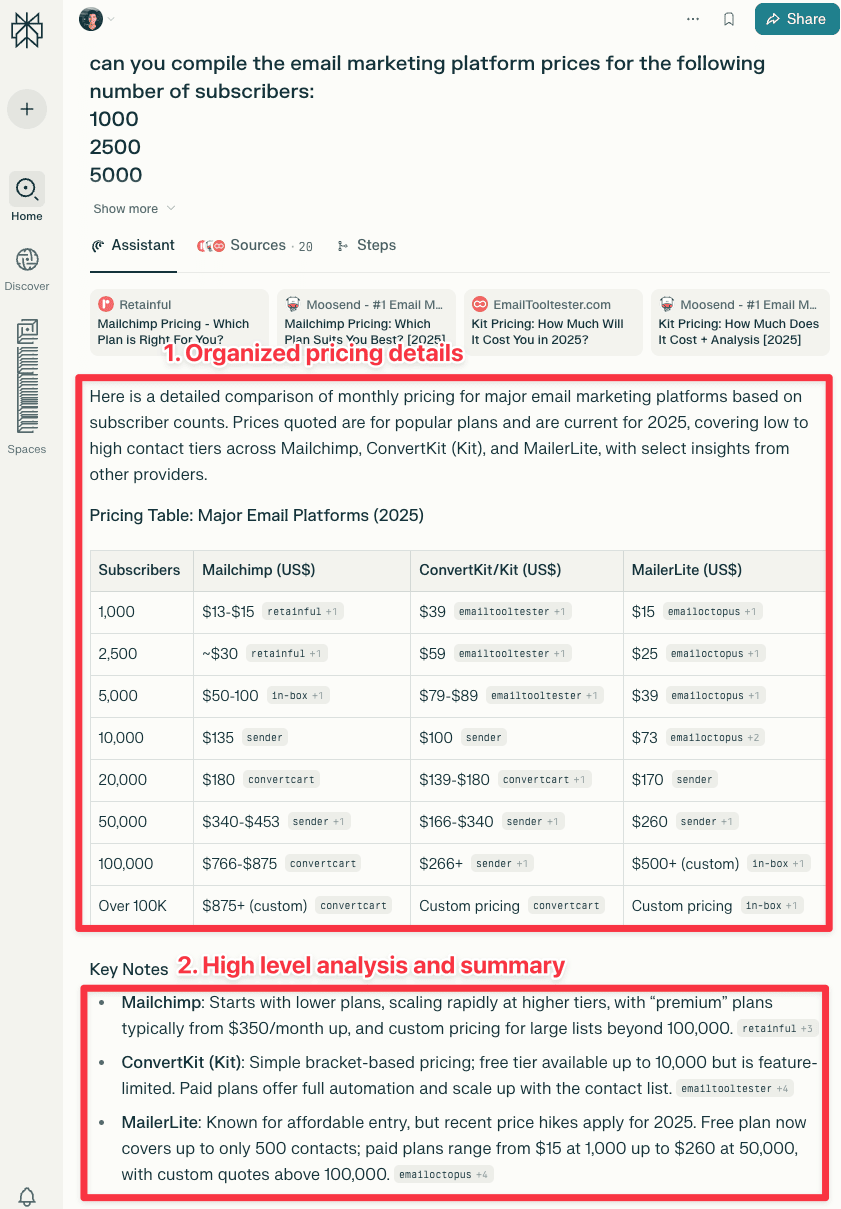
When I run the same search on Google or ChatGPT, I usually just get a short bullet-point summary —nothing close to the level of detail and organization you see here.
And, like ChatGPT, you can ask follow-up questions, but I actually find their related search suggestions pretty good.
Here’s what came up after my initial search for email marketing platform prices.
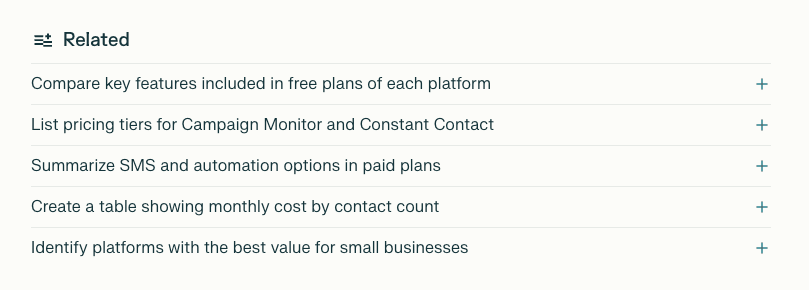
If you're only interested in free plans, you can even narrow down to compare key features across each platform's free tier.
Overall, Comet has been a game changer for all my research/compiling/organizing efforts.
It's free. If you want to check out, head to Perplexity (the company behind Comet) and download it like you would Google Chrome. It works on Windows and Mac.
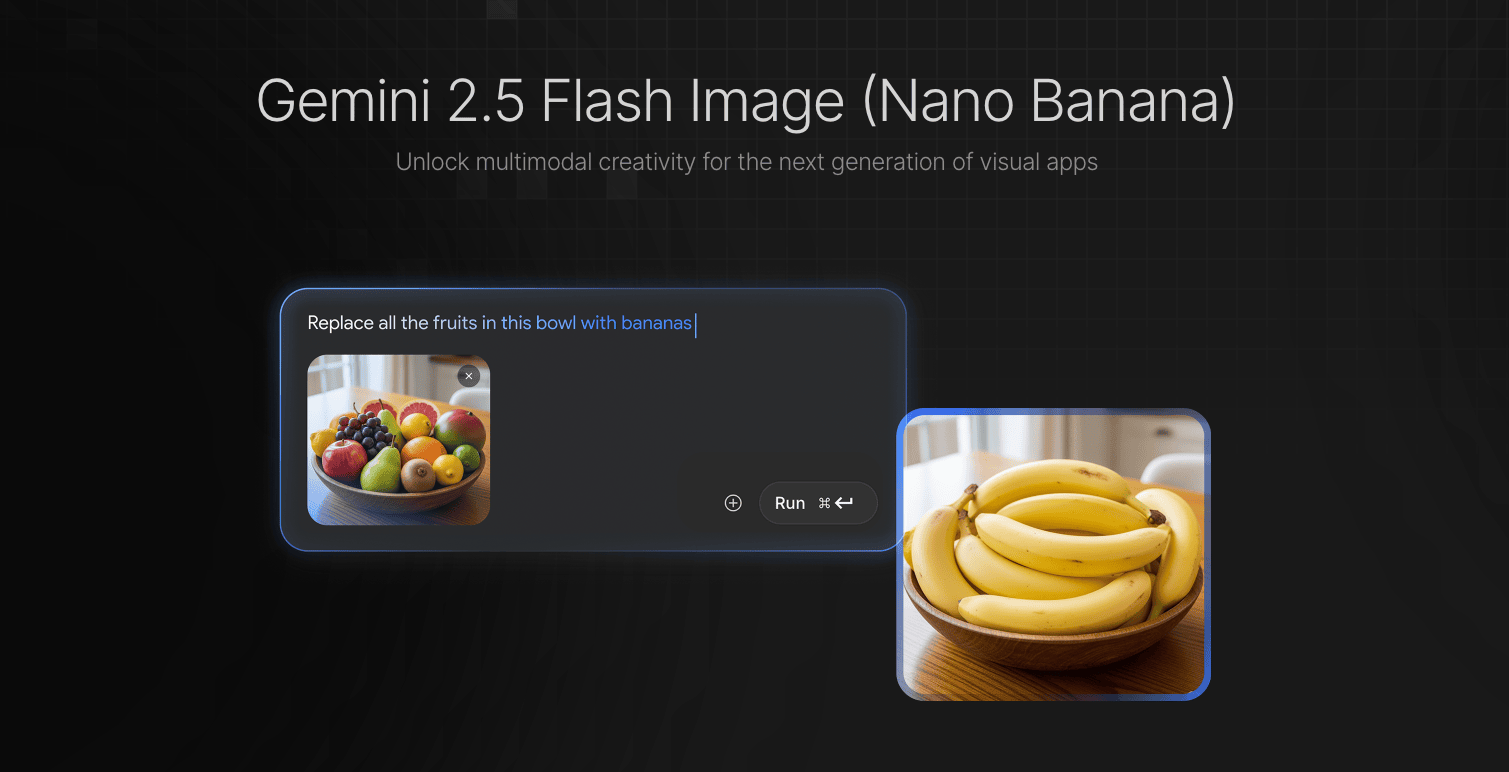
Google may have made photography obsolete Nano Banana back in August 2025.
For the past year or so, the winner in the image generation game has been Midjourney, although ChatGPT did have its moment when their Studio Ghibli-style images went viral, but if you've tried generating images with AI, you know it's very difficult to get real products or people or subjects into those AI-generated images.
Nano Banana solves that.
Here are some examples (and I'll show mine later) that show how people are using Nano Banana to generate real product images for their businesses.
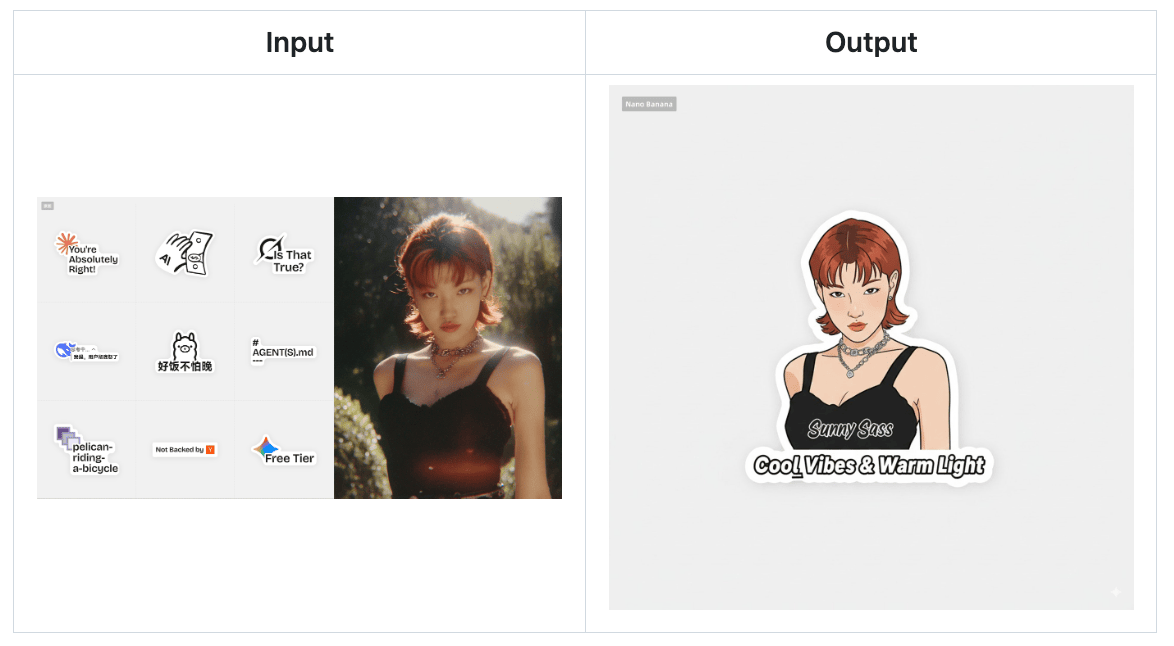
This user (see her prompt here) manages to create custom stickers by uploading a bunch of reference styles and the main character image.

Skirano manages to replace a person's clothing in an image with the target clothing shown in the reference image.
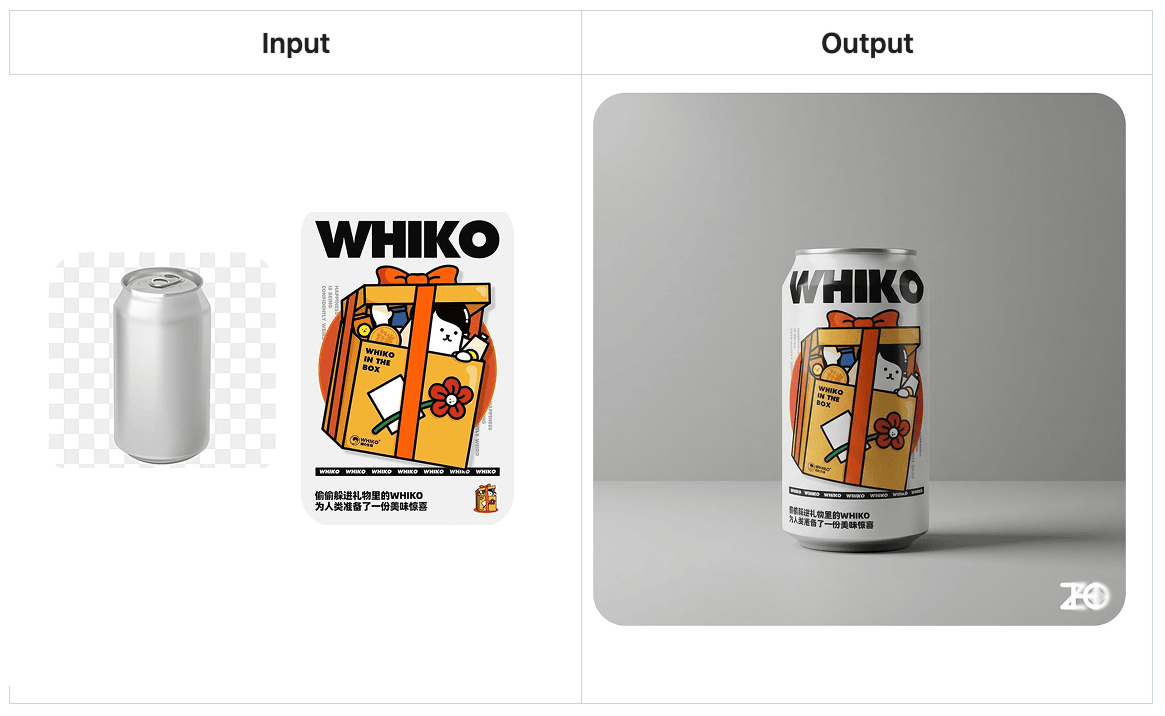
Zho created a product merch for his design with surprising accuracy and fit! All he did was upload a product reference with his design.
And that's exactly what my wife and I did for our side project.
We wanted to create product samples for sticker design, and even though it's not perfect, the design turned out realistic — far better results than we got from ChatGPT and other image-generation tools.
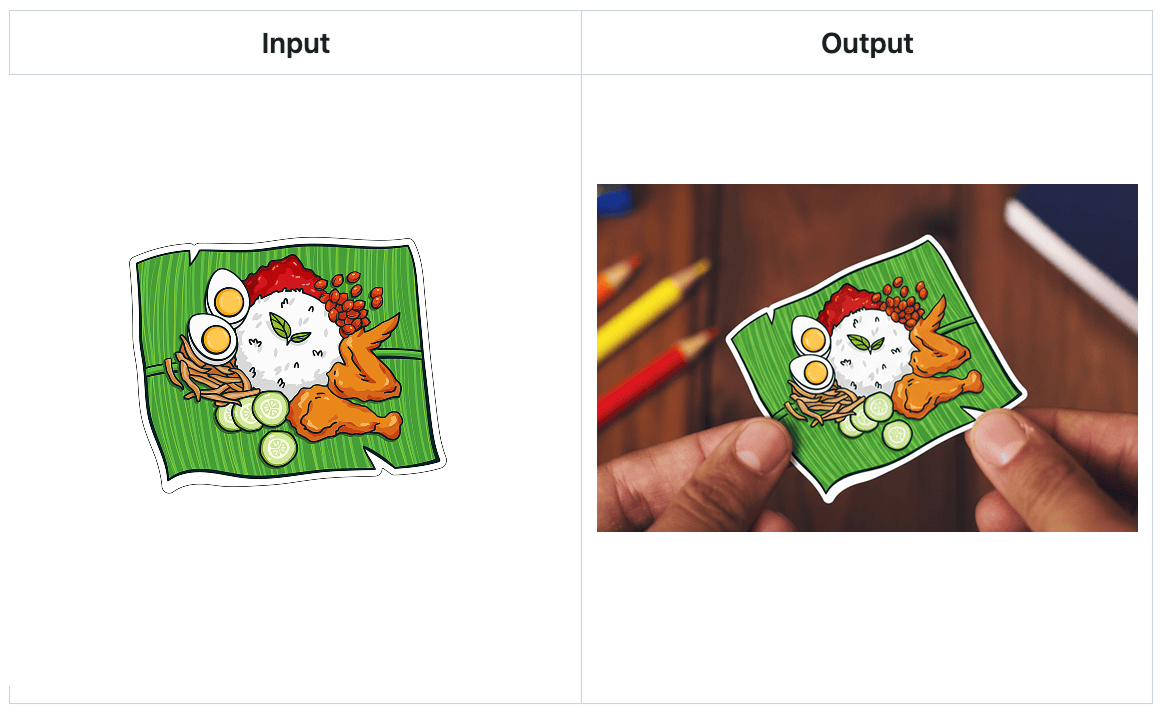
You can use Nano Banana right in Google AI studio and you select Nano Banana before you start a new chat.
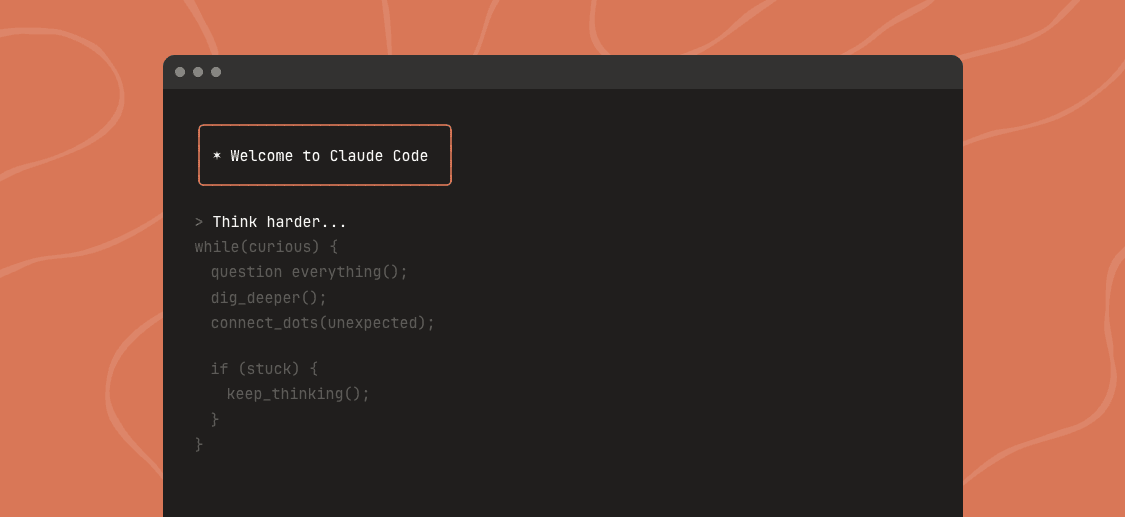
Have you jumped on the vibe coding train yet?
These days, you don't need to know how to code to build apps.
With AI coding tools like Claude Code, Cursor, Replit, and Lovable, you can generate code that's on par with what a junior developer would produce (even though you don't necessarily understand it).
This makes it very accessible for non-techies to bring their app ideas to life without hiring a developer.
And what can you build with AI tools?
Lenny (from Lenny's newsletter) did a fantastic job compiling real vibe-coded apps that people use everyday.
For example:
Personally, I built a quiz (with Claude code assisting) that helps beginners choose a website builder based on their budget and use case.
What sets Claude code apart from other AI coding tools is that they've just introduced 2 new features that help beginners learn software engineering skills.
Even if you don't aspire to become a software engineer, being able to edit and fine-tune your AI-generated apps can be incredibly valuable for growing and scaling your business.
Check out Claude code offical documention if you want to get started.

Did you know that ChatGPT power users don't just use it as-is?
They create custom versions of ChatGPT (aka CustomGPT) tailored to their needs.
For example, training it to analyze their own writing tone, style, and structure to produce content for their business — whether it's social media posts, marketing copy, or blog articles, saving dozens of hours in the process.
I've written extensively on how to build customGPTs yourself, but the gist of it: You can feed ChatGPT samples of your writing, ask it to analyze your style, then create custom instructions so it can write content the same way you do (without you actually writing it).
For example, I've created CustomGPTs for writing ads, optimizing my SEO titles, and occasionally brainstorming unique introduction angles for my articles.
CustomGPTs can do more than just write, of course. In fact, you can browse the official ChatGPT store and explore hundreds of customGPTs designed for different purposes, like there are CustomGPTs that can:
Just a quick heads up, you’ll need a Plus subscription (currently $20/month) to create a custom GPT. It’s a worthwhile investment though, since it’s been saving me over 10 hours a week on content drafting.
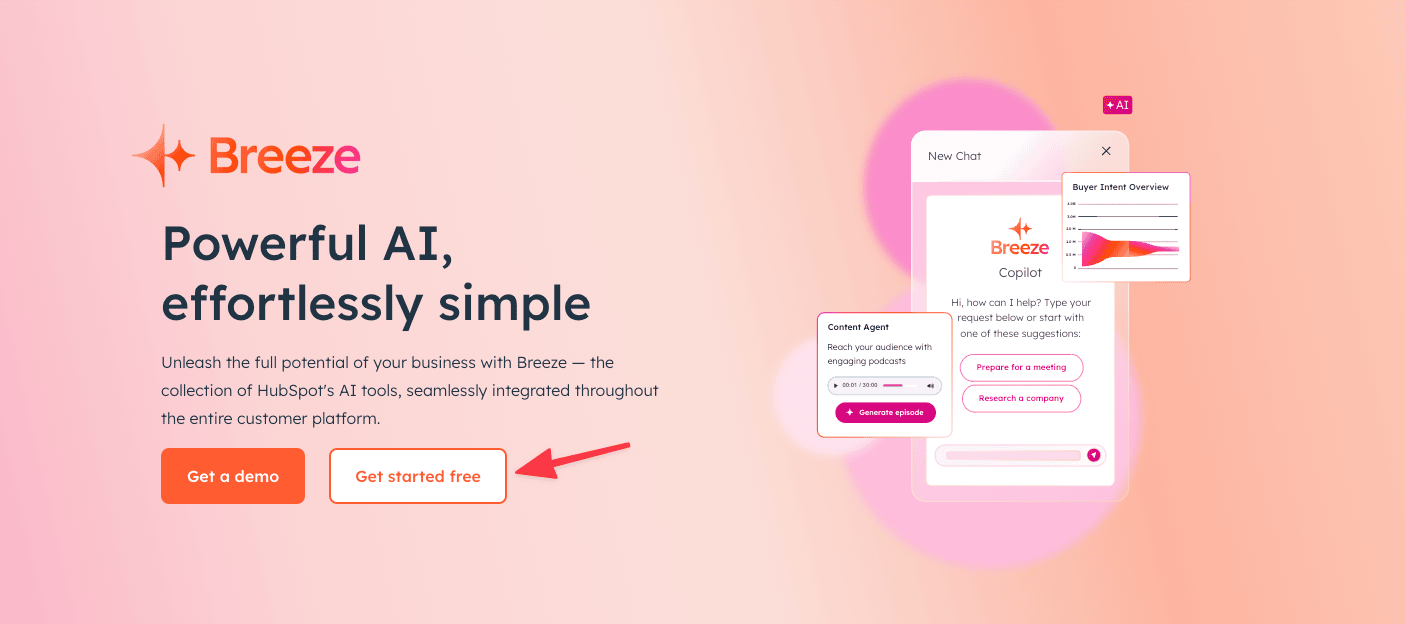
Hubspot started as a CRM but has now grown into an all-in-one business platform.
I've written extensively about how their free plan is one of the most generous in the industry. You can:
Or just add a form to collect leads info, which feeds into their CRM.
When it comes to AI, Hubspot has a collection of AI tools collectively known as Breeze that integrate with its existing CRM and marketing features.
For example:
That said, their most valuable AI feature, in my opinion,is the ability to score and prospect leads in your database.
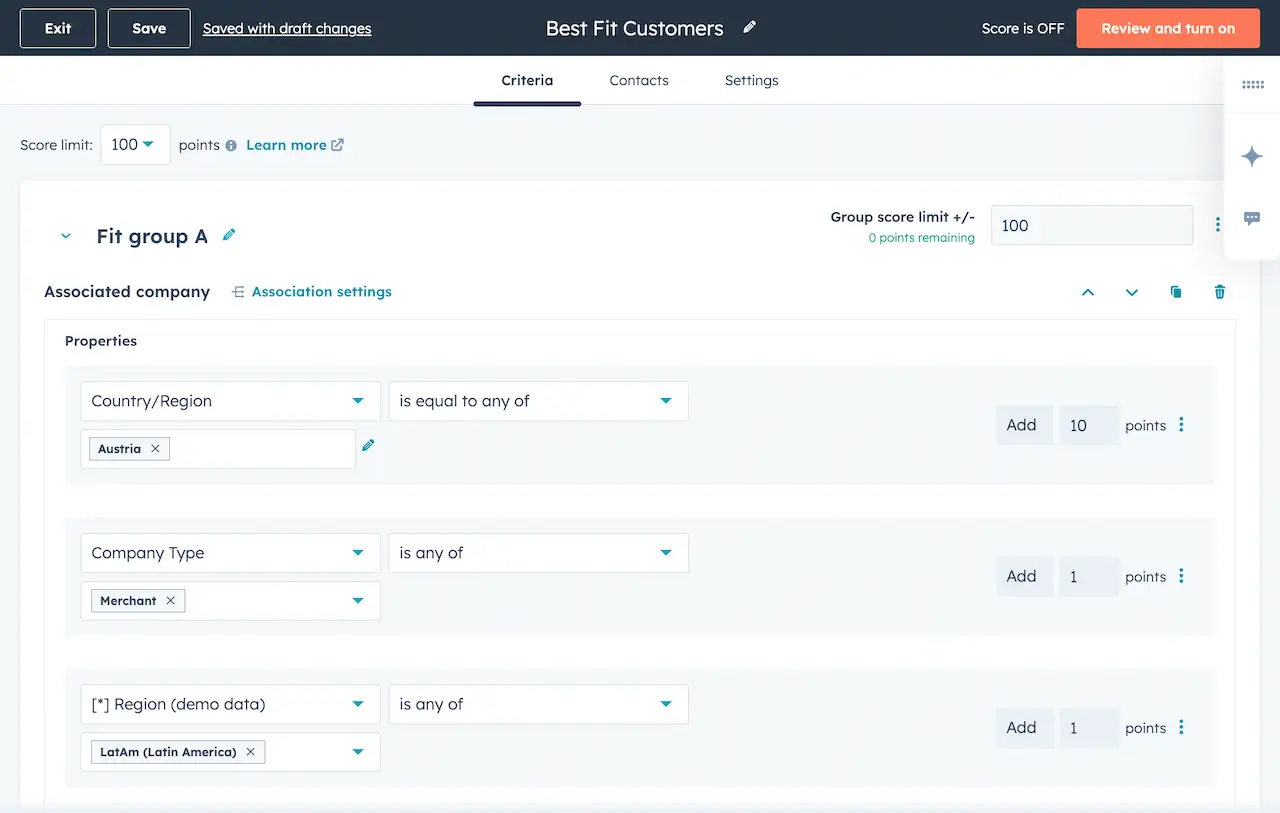
If you collect leads and do not use a CRM from day one, you're likely leaving money on the table.
Business owners with technical skills might feed lead data into Slack or other tools to qualify leads programmatically. But for non-technical founders, lead scoring with Hubspot AI lets you do the same without needing to know how to code with large language models (LLM).
Imagine being able to see when someone signs up and notice who’s actually trying to set up (vs just exploring).
If they get stuck, you can jump in and proactively message them before they ask for help. That's how you tighten the feedback loop and increase your lifetime customer value.
Learn more about Hubspot AI
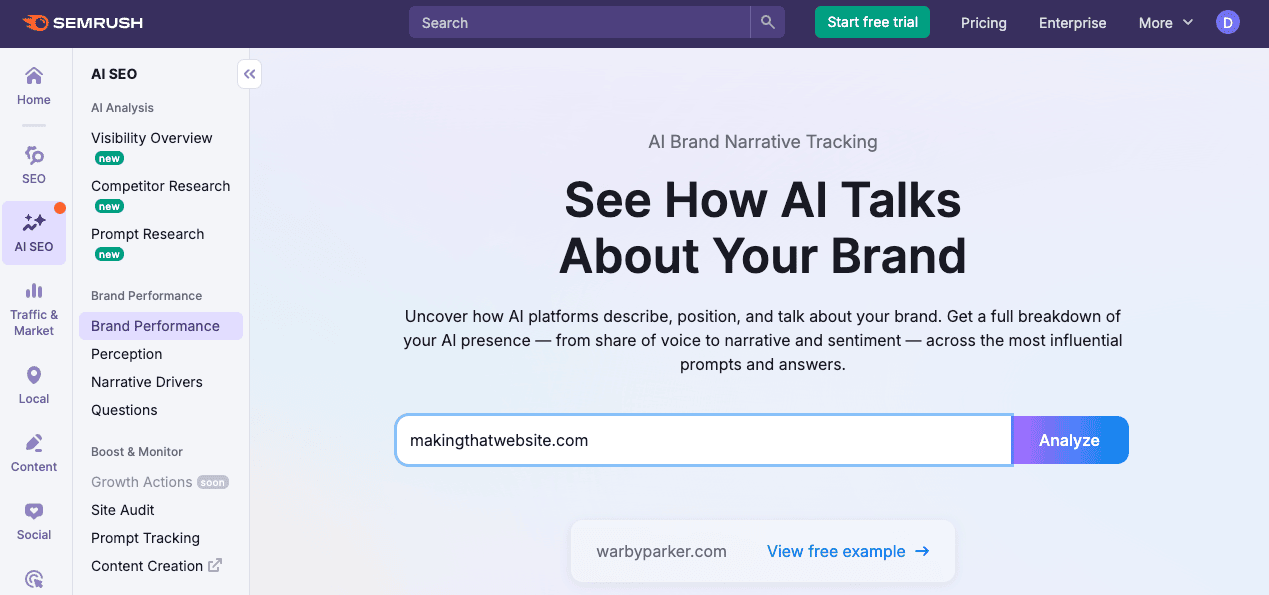
Every business in the world right now wants AI to mention their brand, because frankly that's how people ask questions nowadays.
If I want some quick info or searching for a solution I just pull out the ChatGPT app and get my answers.
Obviously, this changes the SEO landscape and plenty of SEO tools (and agencies) in the market are figuring out ways to help their clients track and optimize their brand presence in these AI tools.
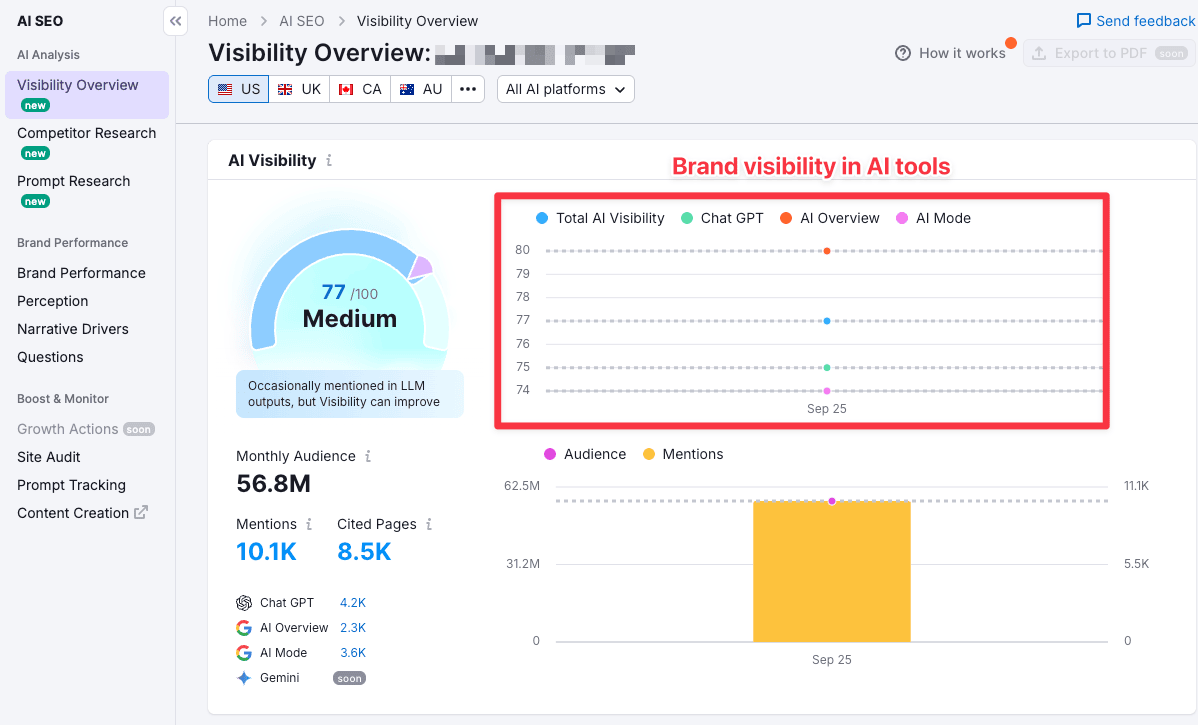
I myself got an early access to Semrush AI toolkit that shows you how AI talks about your brand in search.
It's pretty neat.
Basically, it gives you a breakdown of your brand mentions in AI platforms like ChatGPT, Google's AI overview, etc.
Specifically:
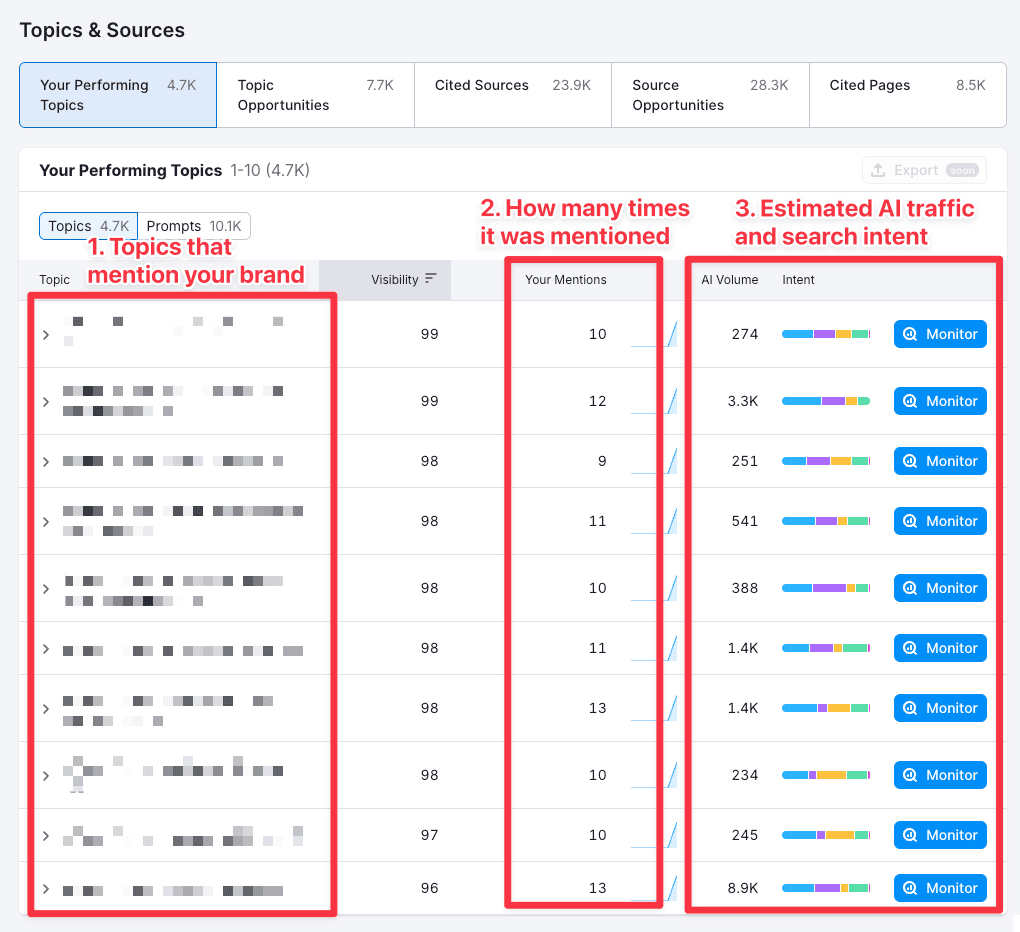
It then gives you specific recommendations based on how your brand is talked about in AI search.
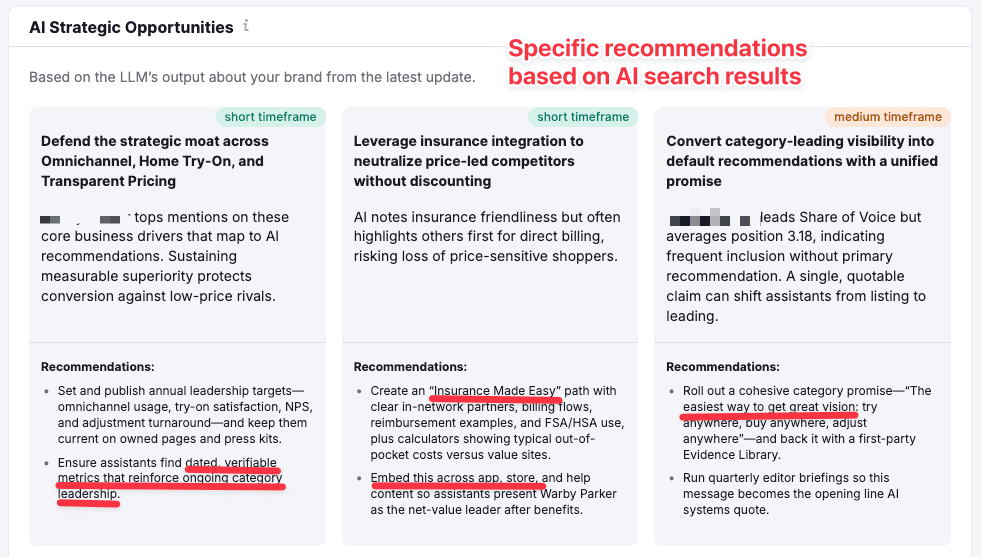
Learn more about Semrush AI SEO
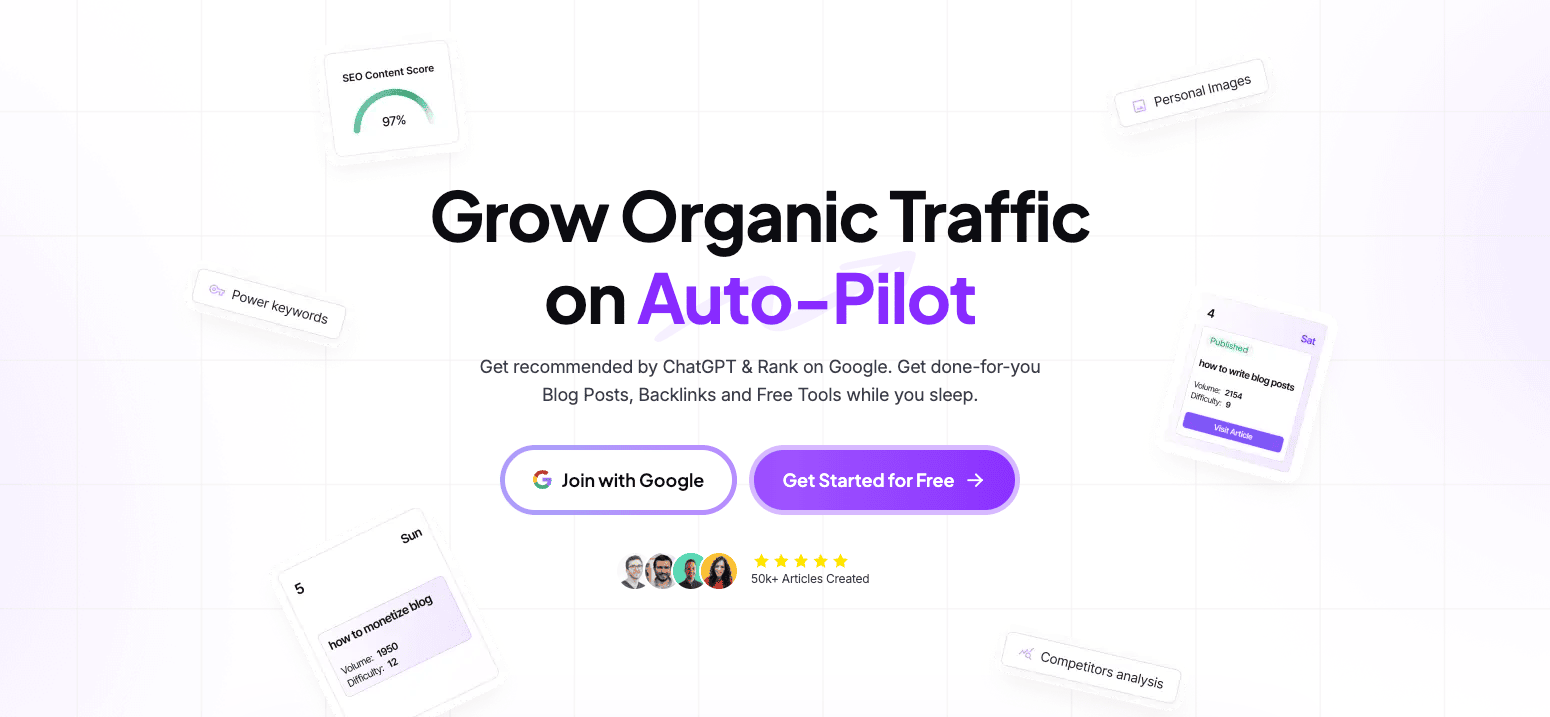
For $99 a month, Outrank uses AI to generate and auto-publish a 30-day content calendar for your blog with the goal of jumpstarting your organic SEO.
That alone would be a strong value proposition in my opinion.
If you’ve ever written or hired writers before, you know that creating 30 articles could easily cost $2,500 or more, and that’s on the low end.
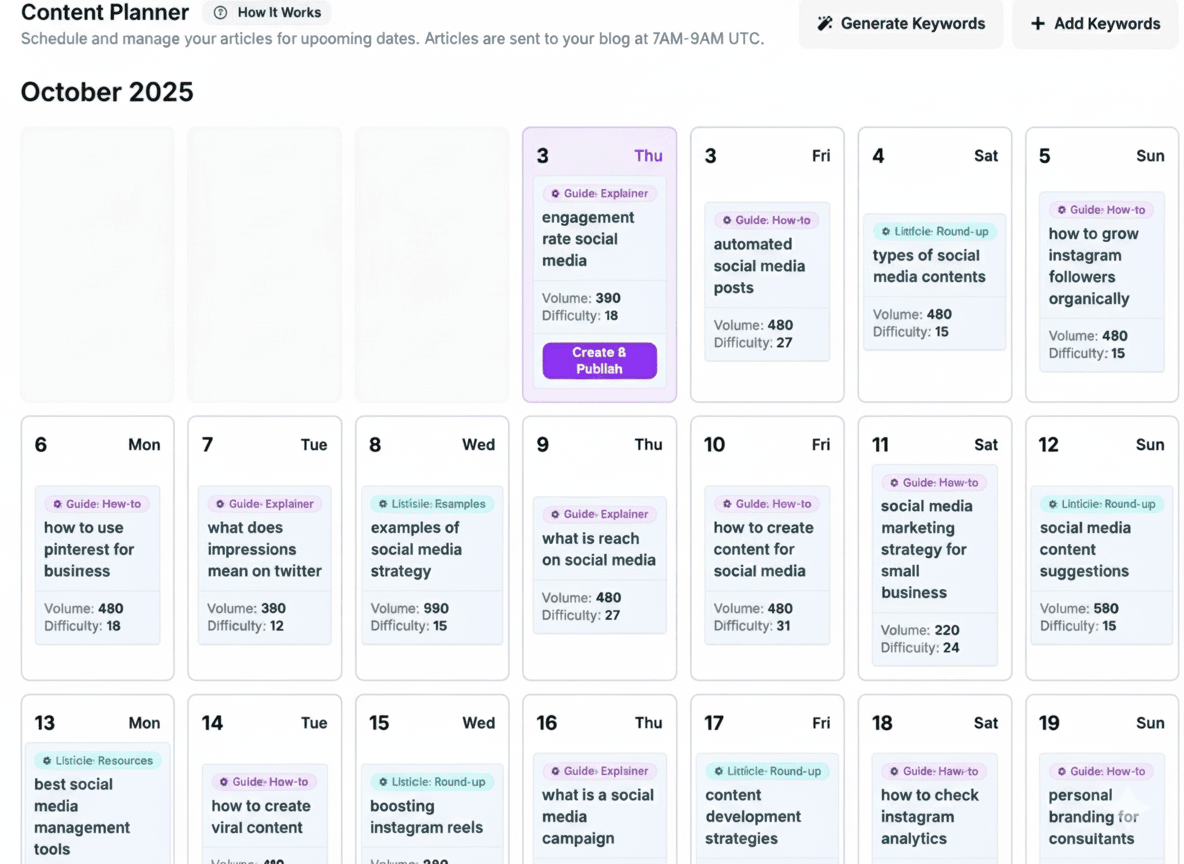
But that’s not even Outrank’s killer feature (I'll get to that later).
Of course, since these are AI-generated articles, the question to ask is: are they any good?
So let's look at a real article generated by Outrank: "Effective social media strategy for small business".
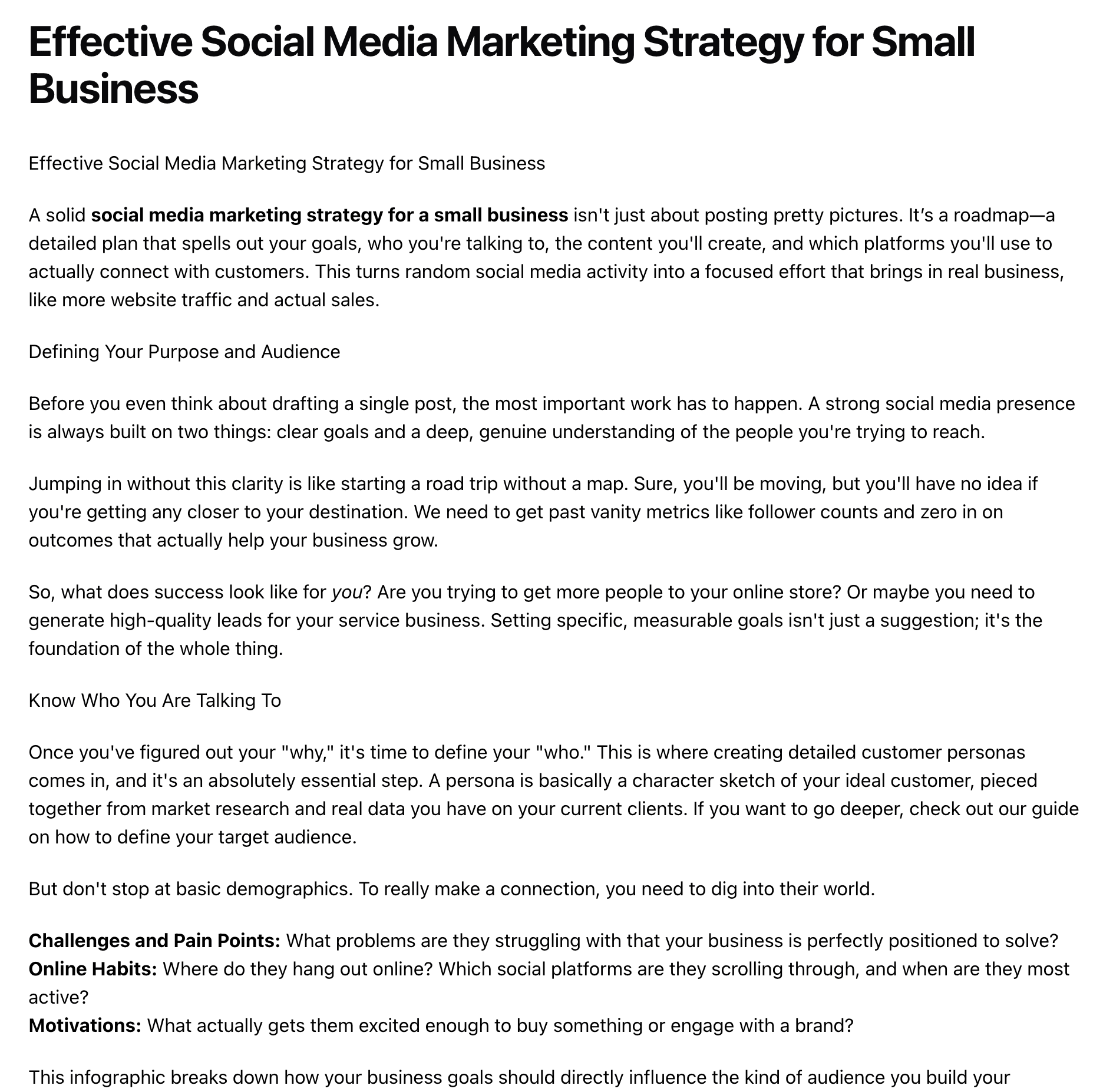
At first glance, the piece is coherent and well-structured.
It has a logical introduction, uses first-person writing, and even includes reader-oriented questions.
But it has one glaring issue that gives it away as AI-generated. See if you can spot it. The content feels broad and generic. AI-generated content often struggles with specificity.
Even in this example, the topic “social media strategy for small businesses” is far too broad to cover in a single post. There are entire blogs dedicated solely to that topic.
That said, I think this limitation is fair and should be expected. AI can’t replicate first-hand expertise or original thinking (at least not yet).
But here's what Outrank gets right:
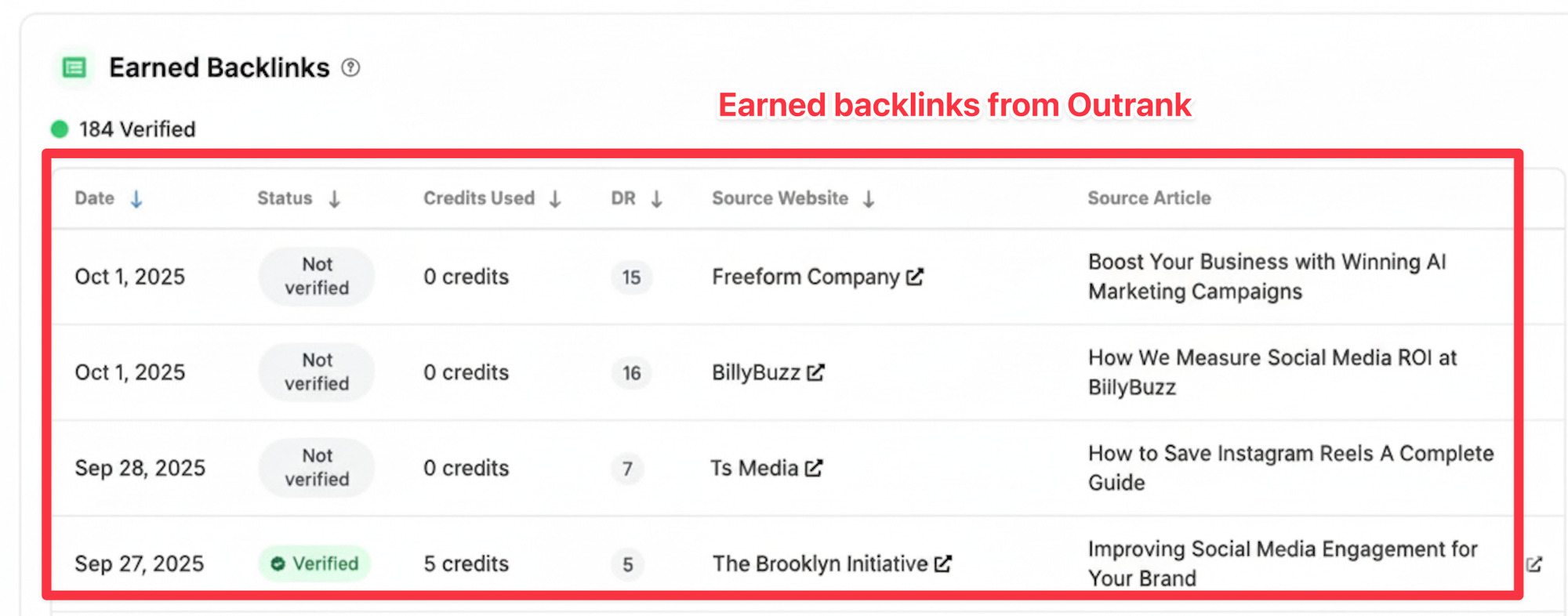
Remember the killer feature I mentioned earlier?
Because Outrank now publishes to hundreds of blogs, it can automatically add backlinks between them.
You can participate in this backlink exchange program. This means your site can start getting backlinks while also simultaneously linking to other websites in the network.
You can track all these backlinks directly from your dashboard, by the way.
To put this in perspective, many site owners pay hundreds of dollars for a single backlink. Outrank includes this feature as part of their $99/month plan, which makes its value proposition even harder to beat.
Without a doubt, the top free AI tools are ChatGPT, Google Gemini, Perplexity, and Claude (by Anthropic). But Each of these platforms has also introduced additional products that enhance and complement their main tool:
Other notable mentions beyond this article include Notion AI (for summarization and note-taking), Canva Magic Studio (for design).
There are several strong alternatives to ChatGPT, each with unique advantages:
Here are top writing tools based on the article and current AI landscape:
If you measure ROI as time saved + new revenue generated, HubSpot AI, Outrank, and Comet stand out as the most impactful across industries.